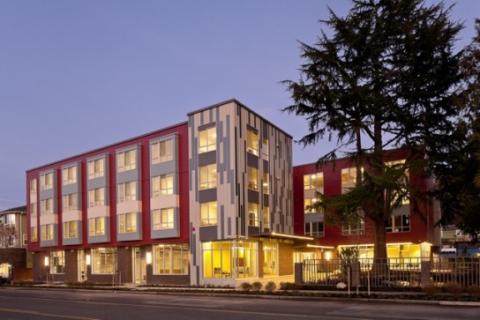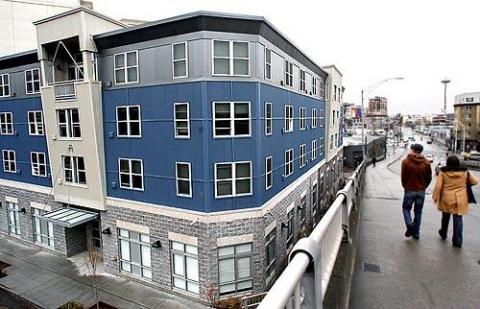Recent Blog Posts
Kate Baber, Homelessness Policy and Advocacy Specialist
The expansion of Medicaid in Washington under the federal Affordable Care Act has extended health care coverage access to over 250,000 people living on low incomes. Despite this success, people experiencing chronic homelessness frequently face significant barriers to using Medicaid. Thus, they are often unable to regularly access health care or reach improved health outcomes.
The U.S. Department of Housing and Urban Development (HUD) defines an individual as chronically homeless if:
1) He or she has a disabling condition and
2a) has been homeless for longer than one year or
2b) more than four times in the last three years.
Washington’s 2014 annual point in time count identified 2,673 chronically homeless persons living outside. Unfortunately, people who face chronic homelessness experience high mortality rates, high rates of chronic physical health conditions, and high rates of behavioral health disabilities. The lack of housing, social supports, and untreated physical and behavioral health disabilities prevents this population from accessing regular care, leads to high utilization of public emergency services, and hinders people’s recovery.

Chronic homelessness is a serious problem in our state. However, we know we can solve it by bringing a housing intervention known as permanent supportive housing to scale. Permanent supportive housing is a specific affordable housing and service delivery model. HUD, the federal Substance Abuse and Mental Health Services Administration, and the U.S. Interagency Council on Homelessness recognize it as an evidence-based best practice. Under this model, affordable housing is paired with intensive tenancy support services, housing case management, and care coordination. Permanent supportive housing is designed to serve people who are experiencing or are at risk of chronic homelessness and who have a severe and persistent mental health disorder, a chemical dependency disability, or chronic and complex physical health conditions. Academic institutions and other organizations have rigorously evaluated this model at both the national and local levels. They've repeatedly shown that permanent supportive housing improves health and housing outcomes, creates efficiencies in care coordination, reduces emergency and crisis service utilization, and helps people with complex needs recover from illness and live with stability, autonomy, and dignity.
Although permanent supportive housing exists across Washington, there is not enough funding currently available to bring this model fully to scale. One of the primary gaps impeding this intervention's expansion is the lack of resources for the services portion provided in permanent supportive housing, services critical to the model’s success. Thus, the Housing Alliance has been exploring strategies to secure additional funds for these services, including the creation of a new Medicaid benefit. This benefit could cover the medically necessary services within permanent supportive housing. Medicaid is well positioned to cover a subset of these services. We believe this is the case because the population needing permanent supportive housing is unlikely to be able to access physical and behavioral health care consistently. This lack of access can change once they are receiving intensive supportive services that help them, 1) avoid chronic homelessness, 2) obtain and retain housing and reach long-term stability, and 3) navigate systems of care.

This fall, we plan on continuing to partner with stakeholders and lawmakers in developing this concept into a proposal that can be introduced during the 2015 legislative session. Stay tuned for updates on this exciting work, and in the meantime, be sure to check out our paper!
Creating a Medicaid Supportive Housing Services Benefit White Paper
Images (from top to bottom)
First image: Pictured left to right: Governor's Office Senior Policy Advisor Robert Crittenden, Rep. June Robinson (38th LD), Rep. Eileen Cody (34th LD) and Cottage Grove Commons resident John Harper. Cottage Grove Commons is a supportive housing development in the West Seattle neighborhood.
Second image: Cottage Grove Commons, supportive housing for 66 formerly homeless men and women living with serious mental/addictive illnesses or other disabling conditions.
Third image: 1811 Eastlake, supportive housing for 75 formally homeless men and women with chronic alcohol addiction.


Add new comment